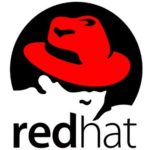Samsung Electronics and Western Digital today announced a collaboration around zoned storage, which is a form of block storage, focused on data placement, processing and fabrics (D2PF) technologies. Western Digital has said zone storage is designed for workloads with increasingly voluminous and complex data management needs, creating “block storage devices that have their address space […]
HPC Storage Specialist Excelero Now Part of NVIDIA
Excelero, a Tel Aviv-based provider of high-performance software-defined storage, is now a part of NVIDIA. “The company’s team of engineers — including its seasoned co-founders with decades of experience in HPC, storage and networking — bring deep expertise in the block storage that large businesses use in storage-area networks,” NVIDIA said in a blog announcing […]
NCI Australia Selects SoftIron for Ceph-based Storage for Integrated HPC Environment
London – February 24, 2022 – SoftIron Ltd., a maker of task-specific data infrastructure appliances, today announced their selection by National Computational Infrastructure (NCI) Australia, to provide Ceph-based object storage for its integrated computational environment. The new storage system will support Australia’s leading researchers through the provision of high-performance computing (HPC), cloud computing and data […]
Red Hat Ceph Storage Powers Research at the University of Alabama at Birmingham
On June 6, Red Hat announced that the University of Alabama at Birmingham (UAB) is using Red Hat Ceph Storage to support the growing needs of its research community. UAB selected Red Hat Ceph Storage because it offers researchers a flexible platform that can accommodate the vast amounts of data necessary to support future innovation and discovery. “UAB is a leader in computational research, with more than $500 million in annual research expenditures in areas including engineering, statistical genetics, genomics and next-generation gene sequencing,” said Curtis A. Carver Jr., VP and CIO at UAB. “Researchers and students aggregate, analyze, and store massive amounts of data, which is used to support groundbreaking medical discoveries from new cancer biomarkers to state-of-the-art magnetic resonance imaging techniques.”





